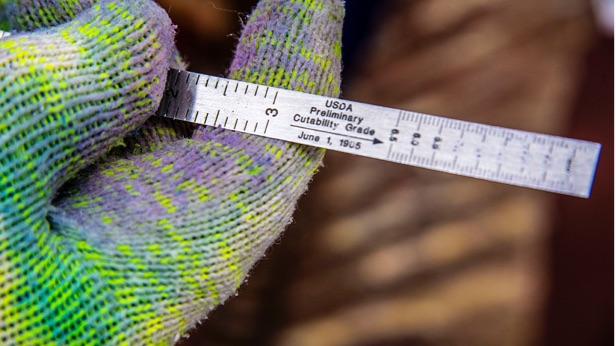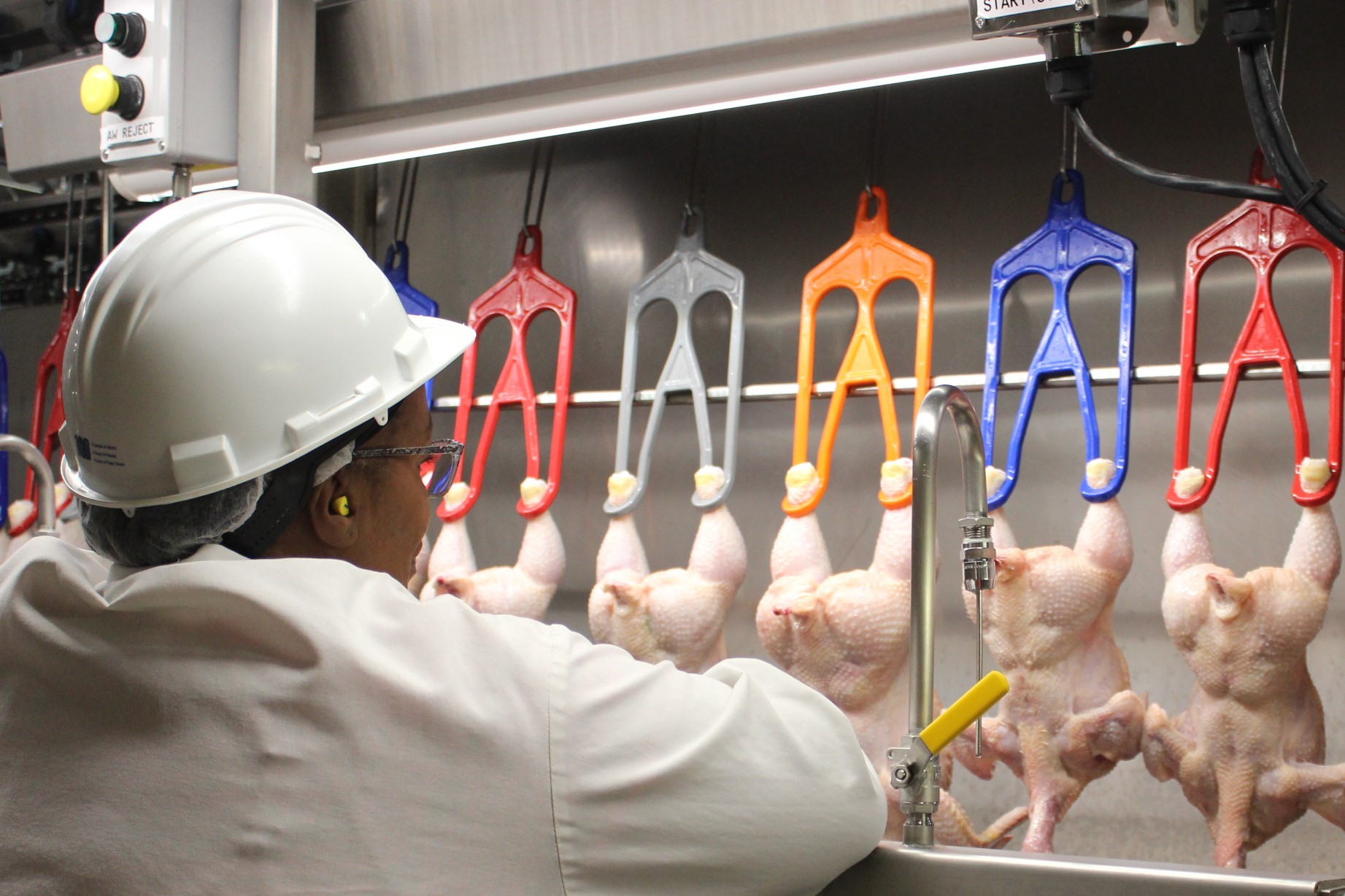
New Technologies Cooperative Agreements FY 2003
The Food Safety and Inspection Service funded cooperative agreements in Fiscal Year 2003 to identify validated technologies suitable for small and very small plants and foster their adoption to enhance the beneficial affects of new technology on food safety and public health.
| Fiscal Year 2003 | |
|---|---|
| Contract Representative | Project Objective or Deliverable |
| Drs. Alejandro Castillo & Gary Acuff Texas A&M University |
Final Report: Development of a Carcass Sanitizing Spraying System for Small and Very Small Slaughterhouses (PDF) |
| Dr. Benjy Mikel University of Kentucky |
Evaluation of various sanitation methods during processing as appropriate Listeria interventions for processors and development of a CD demonstrating critical areas of importance. |
| Dr. Benjy Mikel University of Kentucky |
Rapid response food security system. |
| Dr. Benjy Mikel University of Kentucky |
Development of a Spanish version of the materials for sanitation methods during processing as interventions for small processors. |
| Dr. Benjy Mikel & Dr. Melissa Newman University of Kentucky |
Evaluation of the Efficacy of Surface Flaming at Critical Processing Points on the Microbiological and Quality Attributes of Beef Trim Destined for Ground Beef. |
| Dr. Benjy Mikel University of Kentucky |
Evaluate small plants' ability to respond to bioterrorism alerts, identify and document the efficacy of appropriate, cost-effective interventions and technologies. |
| Dr. Benjy Mikel University of Kentucky |
Development of novel intervention methods against Salmonella spp. for very small pork slaughter facilities. |
| Dr. Benjy Mikel University of Kentucky |
Evaluation of various intervention methods for small processors and development of a CD demonstrating appropriate harvest methods |
| Drs. Govind Kannan & Brou Kouakou Fort Valley State University |
Pathogen reduction in goat carcasses by controlling pre-slaughter gut-fill and fecal contamination of skin/hair. |
| Dr. Steve Ingram & Dr. Dennis Buege University of Wisconsin |
Post-Processing Pasteurization of Beef Snack Sticks and Natural Casing Wieners to Control Listeria monocytogenes
|
| Dr. A. Estes Reynolds University of Georgia |
Utilization of organic acids, chlorinated wash, and hot wash in combination utilizing direct application methods for the reduction of pathogens on pork and beef carcasses available in small and very small processing plants. |
| Dr. A. Estes Reynolds University of Georgia |
Utilization of organic acids in combination with phosphoric acid and other buffer, with chlorinated wash water for the reduction of pathogens on poultry carcasses using direct application methods that would be economically feasible for small and very small poultry processors. |
| Dr. Harold Treese Missouri Department of Agriculture |
Inspect and/or review Missouri small slaughter and processing plants for their E. coli 0157:H7 intervention procedures. |
| Dr. Steve Ingram & Dr. Dennis Buege University of Wisconsin |
Development of training materials to assist meat and poultry processors in preventing Listeria monocytogenes contamination of ready-to-eat products. |
| Dr. Mindy Brashears Texas Tech University & Dr. Guy Loneragan West Texas A&M University |
Impact on hide interventions and cleaning on the microbial quality of beef carcasses in small and very small processing plants. |
| Dr. Mindy Brashears Texas Tech University |
Web Site: Interventions for Beef Trim To Be Used in Ground Beef Products |
| Dr. Brian Hampson California Polytechnic State University |
Audit the efficacy of interventions currently in use by small businesses. |
| Dr. Brian Hampson California Polytechnic State University |
Monitor biofilm build-up on surfaces during processing operations and recommend procedures to control build-up. |
Featured Resources
Last Updated: Mar 24, 2015



